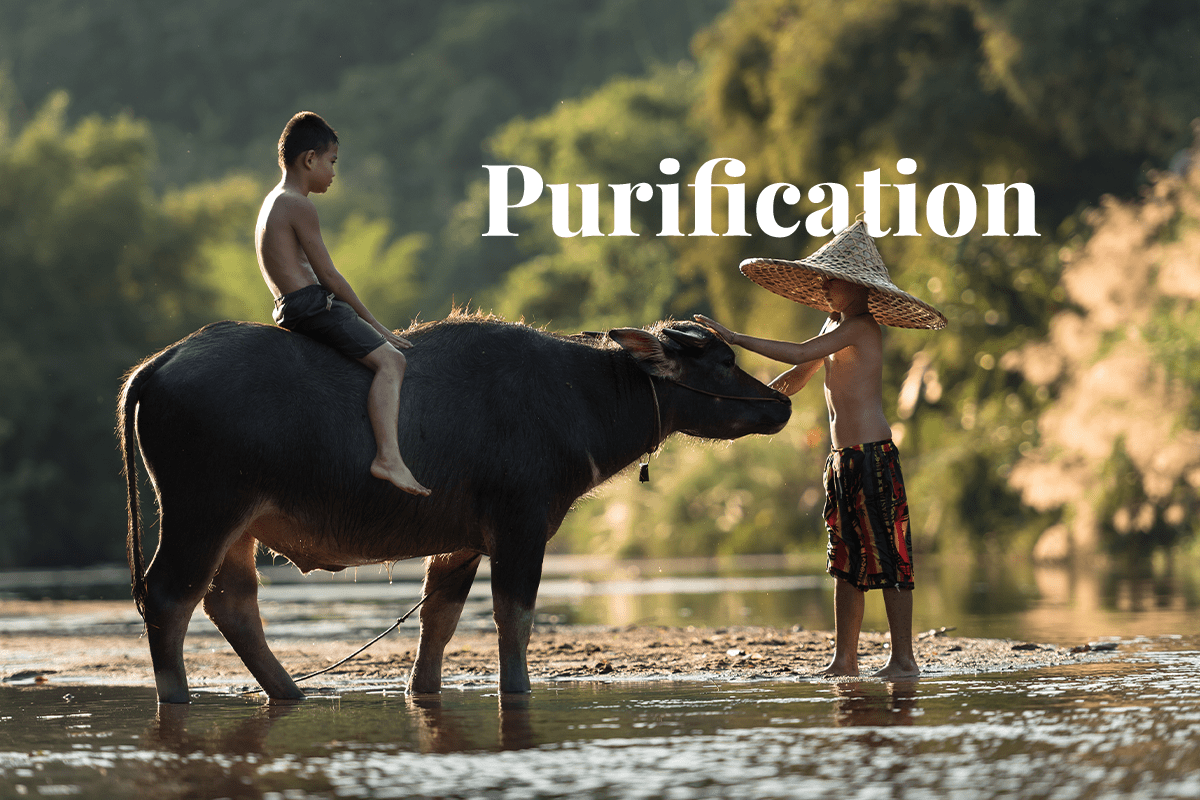The World Bank has unveiled a $50m Emission Reduction-Linked Bond to finance low-carbon development projects in Vietnam that generate carbon credits. Proceeds from the bond will be channelled to World Bank projects, with coupon payments used to fund the manufacture of water purification devices. The bond investors will receive a return linked to the issuance of carbon credits generated by Vietnam's water purifier projects. The project aims to make and distribute 300,000 water purifiers to schools and other institutions to cut carbon emissions, improve air quality, and lower fuel costs. The bond will be 100% principal protected, and investors will receive semi-annual coupon payments linked to carbon credit issuance.
 Children with buffalo, Vietnam.
Children with buffalo, Vietnam.
The Emission Reduction-Linked Bond is an outcome-based financial instrument designed to attract private capital to drive positive climate and development outcomes. In this bond, outcomes are measured by the issuance of carbon credits. The bank's previous Rhino bond was a success with investors. However, the current bond in Vietnam will see rising interest rates, offering investors a higher return than conventional International Bank for Reconstruction and Development (IBRD) bonds.
Read more: Exploring innovative structures for green bonds: green securitisations, sustainability-linked bonds, and green social bonds
The purifiers will make access to clean water possible while addressing emissions by preventing wood burning to purify water. The project can potentially reduce about 6 million tonnes of carbon dioxide, equivalent to shutting down two coal-fired power plants for a year. The World Bank has partnered with Sustainability Investment Promotion and Development Joint Stock Company (SIPCO), a private company in Vietnam, to implement the project. The reduced emissions will become carbon credits issued by Verra, which will be sold to fund a coupon payment for investors. The bond is exceptional for its strong social profile and significant green carbon credit.
The carbon credits-linked bond can help build up carbon credit markets. This could benefit the World Bank's initiatives to finance sustainable development projects, including green and social projects for positive social and environmental outcomes. The bank's objective is to align the projects' results with the United Nations Sustainable Development Goals (SDGs) by working closely with governments to assess SDG progress and identify areas where it can provide support.
 Farmer in a rice field, Vietnam.
Farmer in a rice field, Vietnam.
Green bonds and other similar financial instruments are vital to the healthy development of sustainable projects. At DGB Group, we believe it is significant for investors to have the opportunity to make a change for the better through their investments while benefiting from steady returns. DGB’s green bonds offer exactly that perfect combination of smart investing and meaningful impact.
Contact our experts to learn more




